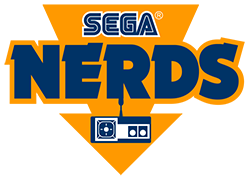
Football Manager: How Simulations Changed the Game
Research indicates that millennials are entrepreneurial, which shouldn’t come as a surprise looking at the popular gaming trends. Football Manager, now in its 13th incarnation, proves this. The game revolves around being the manager of a football team – in gambling with players’ abilities, players’ strengths and weaknesses, and attempting to rise through the ranks to the ultimate spot in the league. At its core, Football Manager is a business simulation game – and theoretically, it shouldn’t be as enjoyable to active football fans as it is. So, what is the appeal with simulation games?
Football fans are renowned for opinions regarding players, teams, and strategic decisions of play that are undertaken in the game. Sega capitalized on this “I could do a better job” attitude to create a game that allowed fans to attempt to do a better job. Sociological studies have been undertaken into the game to identify that playing Football Manager does help round a fan’s sporting identity. Indeed, the WWE wrestling simulation game, Smackdown Vs Raw, also featured a mode in which players could run each show in the company – competing against the rival franchise.
@GonzoGabe this
#FootballManager pic.twitter.com/LwyEBlwBCn
— Eric (@PhantomImpulse) June 25, 2017
At its very core, the game is a betting game. Instead of winning and losing money, you win and lose reputation, and it helps you work on your strategic decision making. In the same way that watching a wagered game comes with consequences if your team wins or loses, your managerial abilities also come with strings. It’s not enough to just play the games now; players want a chance to affect change in the game world, and simulation games allow this to happen.
We are moving into more digital times, and the popularity can even be seen in e-sports betting. As Master Mazuma’s e-sports betting guide shows, fans are able to take a vested interest in the outcome of events – and series of events – much the way they have as a manager on a simulation game. Plus, by being able to wager in Bitcoin, the currency forms a nice step up from the money used on Football Manager. The games available to bet on will add to the investment of the game, much like the Football Manager simulation. It’s all just a gamble on instinct and strategy that players hope pays off.
Geezer from love island is about as good on football manager than he is pulling
pic.twitter.com/7uPcPbRO5A
— Vessey (@Vessey95) June 25, 2017
It’s not just sports that benefit from the simulation aspect. On paper, being the manager of a theme park or a hospital doesn’t sound particularly interesting. In comes Rollercoaster Tycoon and Theme Hospital and suddenly strategic business decisions have replaced the ability to click your thumbs really fast. Players want to be tested and stretched mentally, and simulation games allow this to happen.
The success of simulation games comes down to two factors: players want a chance to use their brains, and players want more control over how they game. While development in graphics and gameplay are incredibly important in making a successful game, if the ability to act as escapism and stretch the player is absent, the game will flop. Football Manager will likely be as successful as the game itself continues to be, and arguably teaches life skills of organisation, trusting your instincts and thinking both tactically and strategically in order to achieve an objective. Of course, there is the aspect of chance that comes into the game, but that just adds to the fun – and replicates what real life is like.







